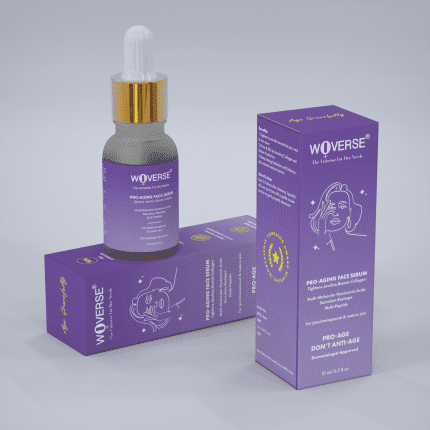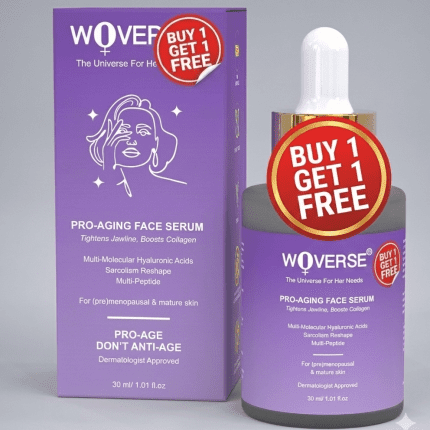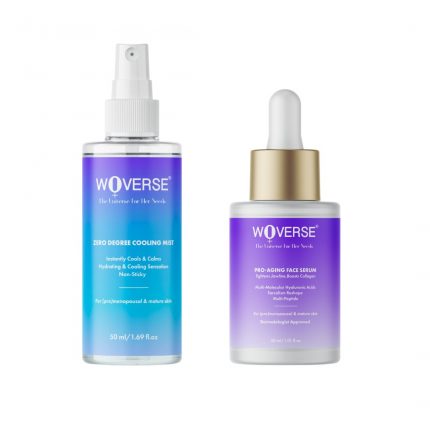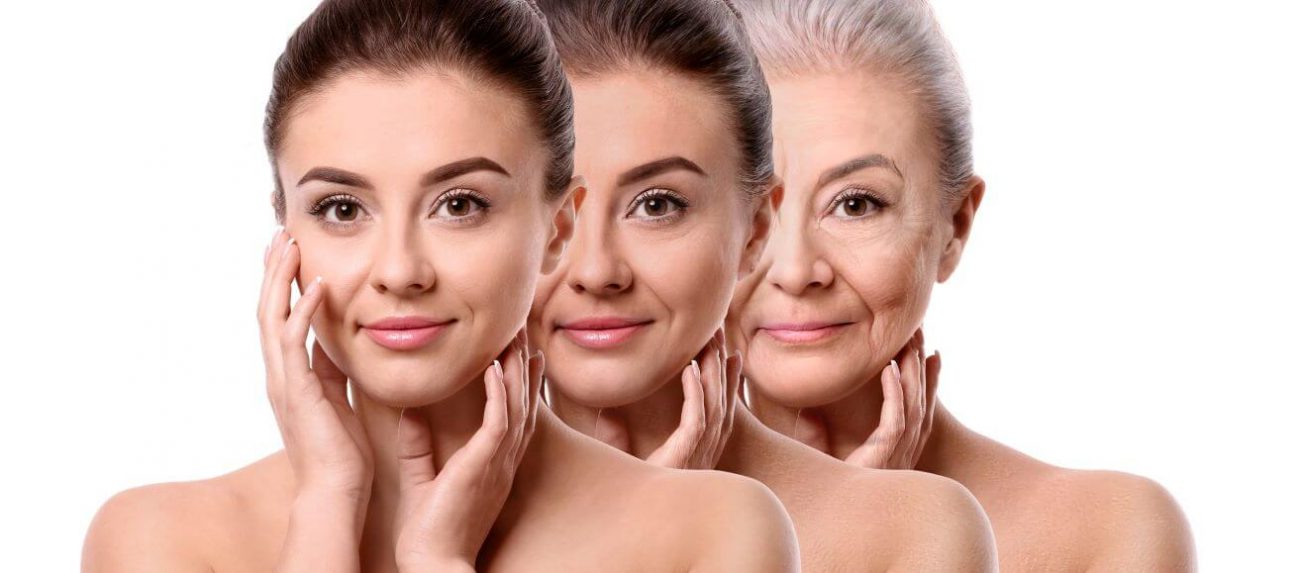Do I Need A Serum?
Skincare can be confusing, especially in midlife. If you are looking for real results from your skincare, targeted products are what you need. Think of a serum as the powerhouse of your regime. If you aren’t already using one, now is the time to start but choosing the right formula is key for glowing, healthy skin.
Skincare can be confusing – with so many products, ingredients and steps to choose from it can be hard to know what is really going to work. Throw midlife skin changes into the mix and things and it can seem even more complicated.
That’s why we created WOVERSE – to simplify your regime with all the ingredients and products you need for the perfect skincare routine in menopause. One question we get asked often is “Do I need a serum?”. If you are looking for serious results in midlife, think of a serum as the powerhouse of your routine. If you aren’t already using one, now is the time to start but choosing the right formula is key for glowing, healthy skin.
Understanding Menopausal Skin Changes
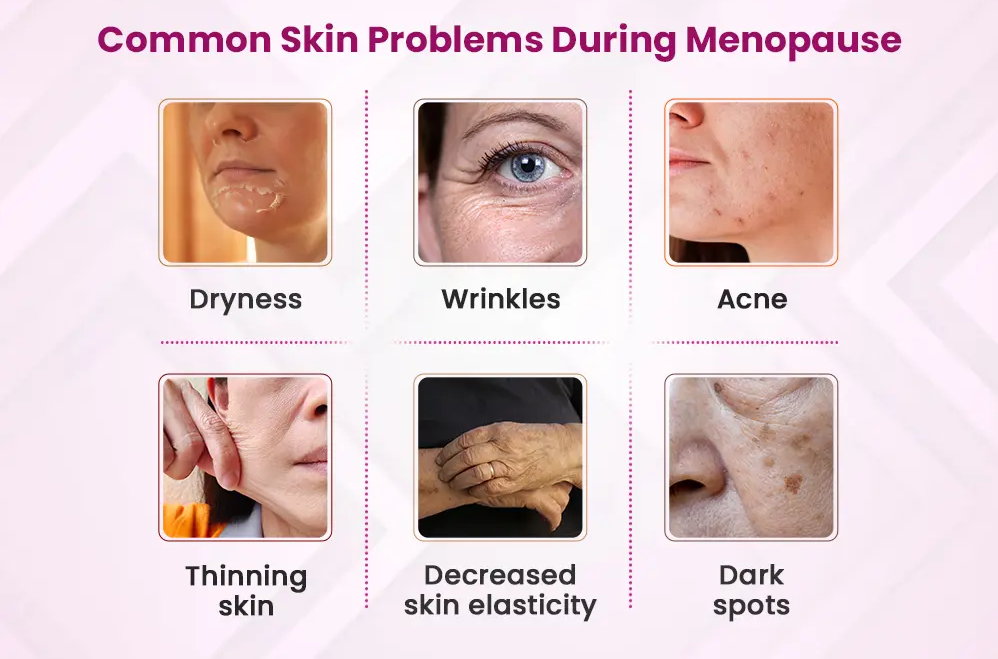
To appreciate the importance of serums in midlife, it’s important to know what is happening to our skin. Fluctuating hormones have a dramatic effect on the condition of our skin.
Dryness and Sensitivity: Hormonal changes can lead to reduced oil production, making the skin dry and more sensitive as it loses its ability to hold onto moisture.
Decreased Collagen Production: Collagen, the protein responsible for skin’s firmness and elasticity diminishes around menopause. We lose 30% of collagen in the first 5 years following menopause. Skin becomes less elastic and firm as a result.
Wrinkles & Fine Lines: During menopause, collagen and elastin production declines, making the skin more susceptible to wrinkles and fine lines. Women often experience these changes around the eyes, mouth, and neck.
Loss of Radiance: As collagen declines, our skin tone starts to suffer appearing less radiant – many women complain of losing their glow as skin starts to become drier and less elastic.
Thinning Skin: The skin’s layers become thinner, which can make it more fragile and prone to damage.
Age Spots & Hyperpigmentation: Age spots and uneven skin tone can become more pronounced due to changes in melanin production.
The Power of A Serum in Menopause
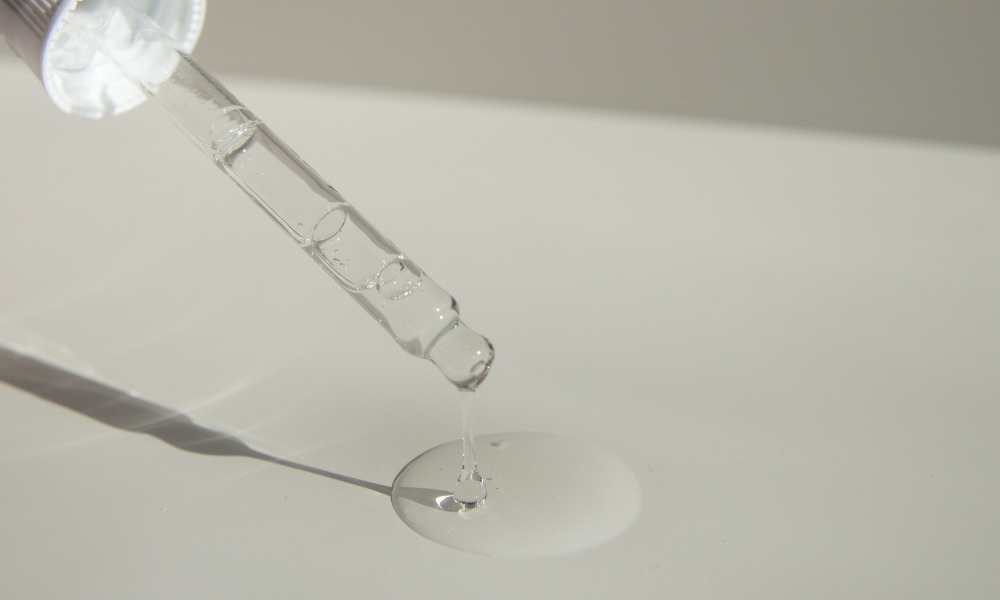
Serums are lightweight, fast-absorbing liquids designed to deliver high concentrations of active ingredients directly to the skin. Here’s why serums are particularly beneficial around midlife when our hormones start to wreak havoc with our skin.
Intense Hydration
As the skin becomes drier during menopause, it’s crucial to keep it well-hydrated. Serums containing hyaluronic acid can hold up to 1,000 times their weight in water, providing deep hydration and helping to maintain the skin’s moisture balance. This can alleviate dryness and improve skin texture.
Boosting Collagen Production
Ingredients like peptides can stimulate collagen production. By promoting the synthesis of new collagen, these serums help reduce the appearance of fine lines and restore firmness and elasticity to the skin.
Enhanced Absorption of Active Ingredients
Serums have a smaller molecular structure than moisturizers, allowing them to penetrate deeper into the skin. This makes them highly effective in delivering potent ingredients like antioxidants and vitamins to the targeted areas that need them the most.
Targeted Treatment
Whether you’re dealing with age spots, dullness, or loss of firmness, dryness a serum can address your specific concerns.
OUR PRO AGING FACE SERUM IS SPECIALLY MADE FOR PERI-POST MENOPAUSAL SKIN.
It Targets:
- Saggy skin especially saggy jawline (Jowls).
- Dryness
- Loss of collagen
- Compromised skin barrier during Perimenopause and menopause.
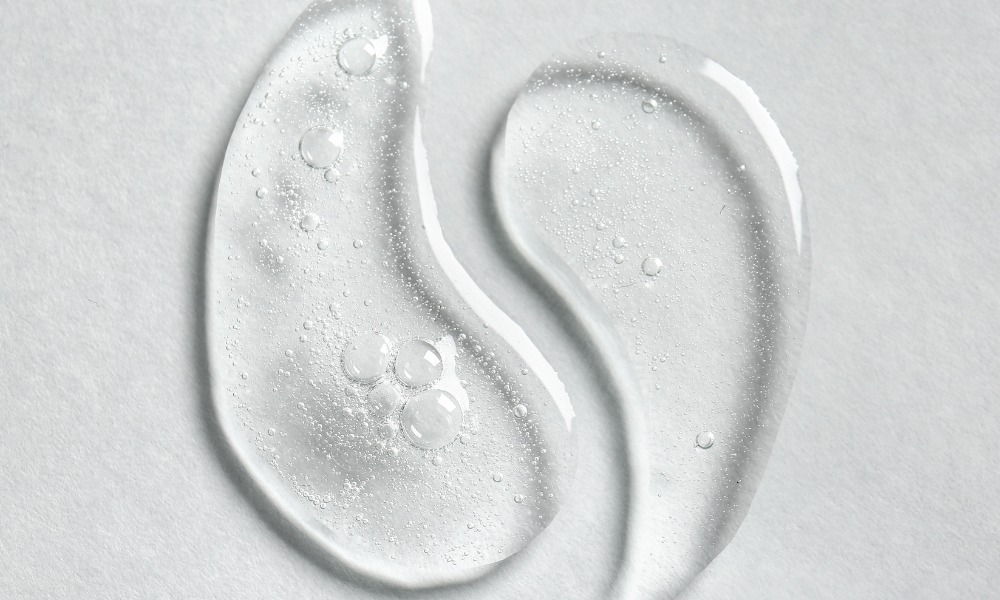
It contains:
- Multi-Molecular Hyaluronic acid: This formula contains multi-molecular H-Acid has the exceptional ability to deeply hydrate the skin, improve its texture, and enhance elasticity. With varying molecular weights, it can penetrate different skin layers, plumping and rejuvenating the skin’s appearance while reducing the visibility of fine lines and wrinkles.
- Multi-Peptides: It increases elasticity and firmness.
- Highly Potent Active Ingredients: Tightens skin, boosts collagen, improves skin barrier.
Incorporating Our Serum into Your Routine
To maximize the benefits of your serum, follow these steps to build the perfect skincare routine in midlife:
- Cleanse: Start with a gentle cleanser to remove impurities and prepare your skin.
- Apply Serum: Use a few drops of serum on clean skin, gently patting it with your fingertips.
- Moisturize: Follow up with a moisturizer to lock in hydration.
- Sun Protection: Always apply sunscreen during the day to protect your skin from UV damage.
-
15ml Face Serum with Award-Winning Sarcoslim for face tightening | 3% Multi-Peptides & Multi-Molecular Hyaluronic Acid
Original price was: ₹499.00.₹199.00Current price is: ₹199.00. -
30ml Face Serum with Award-Winning Sarcoslim for face tightening | 3% Multi-Peptides & Multi-Molecular Hyaluronic Acid
Original price was: ₹699.00.₹399.00Current price is: ₹399.00. -
Combo (Pro Aging Face Serum -30ml + Zero Degree -Cooling Mist)
Original price was: ₹1,198.00.₹399.00Current price is: ₹399.00. -
Cooling Mist for Hot Flashes, Night Sweats & Summer Heat
Original price was: ₹599.00.₹199.00Current price is: ₹199.00. -
Menopause Care Pack (1 Pro Aging Face Serum -30ml + 2 Zero Degree -Cooling Mist For Hot Flashes) —
Original price was: ₹1,897.00.₹1,500.00Current price is: ₹1,500.00.

